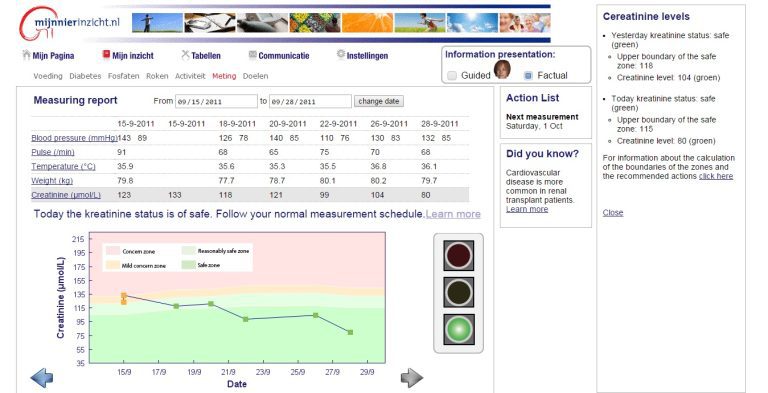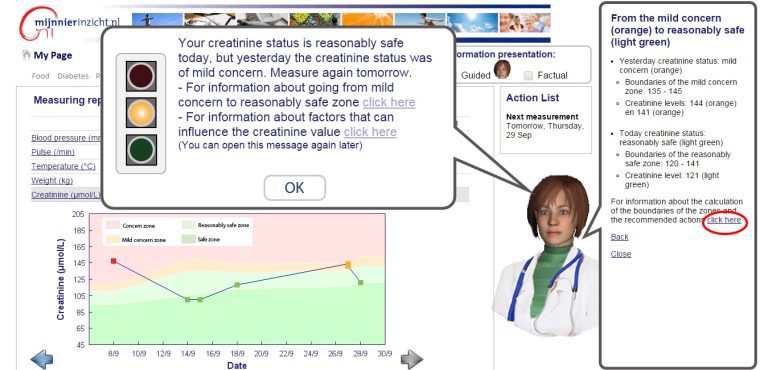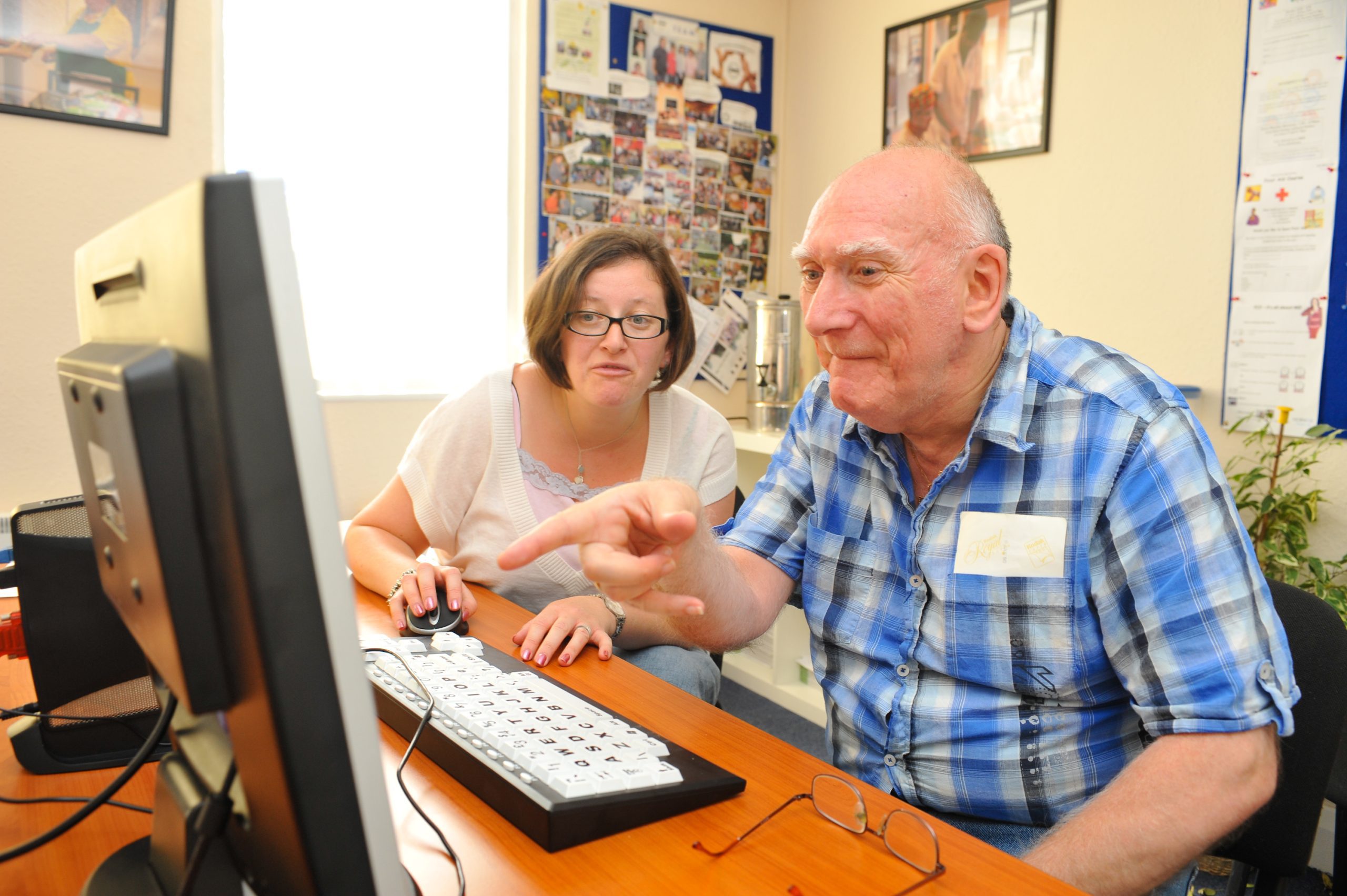Websites that support patients could reduce costs and make people less dependent. Several initiatives are taking off.
Self-management support systems have been developed for illnesses varying from diabetes to depression. PhD candidate Wenxin Wang worked in the intelligent systems group of the EWI Faculty on a similar system for renal patients who received donors’ kidneys. These patients have to monitor their blood pressure and the creatinine level in their blood on a daily basis, as indicators for the potential rejection of the implanted kidney by their bodies.
A website called mijnnierinzicht.nl was set up in which patients could enter their blood pressure and blood levels every day. The system was tested in a clinical trial with 50 patients over a year under the guidance of the Leiden University Medical Centre (LUMC).
Acceptance and adherence, or loyalty, to the self-management programme is of critical importance for kidney transplant patients since the rejection of the organ can have severe and potentially lethal consequences. Wang studied ways in which to improve these key factors.

She experimented with different communication styles as feedback to the patients. The simple style, for example, would say ‘Your creatinine value has increased this time. Measure again now.’ The affective variation was: ‘Your creatinine value has increased this time. Do not worry immediately. Please measure again now.’ This tender version could also display an avatar of a nurse sharing her concern. And the ‘empowerment version’ would say: ‘Your creatinine value has increased this time. The value is in the uncertain range. Measure again now.’

Wang found out that people’s preference for feedback style mainly depended on their health status. If their status was green or red, they didn’t care much about the communication style. Either they were okay, or they had to go to the hospital for help. It was in the orange zone that people were most sensitive to the feedback. Under pressure, it appeared, most patients preferred information (empowerment style) over pity (affective style).
Wang also found out that although people did perform their measurements regularly, they tended to get sloppy with entering data on the website.
Over the telephone, Wang agrees that automatic data entry by Bluetooth coupling and an app-based platform might improve patients’ adherence to the programme. “But in 2010 when we started the project, smartphones were not yet as common,” she said. “And most patients were elderly people, which is why we chose for the website and desktop approach.”
In the meantime, the website mijnnierinzicht.nl has been disbanded and the research funding has stopped. The website didn’t function very well and it was not appreciated by nephrologists, says Editor Jeroen van Setten of the patients’ news site niernieuws.nl. His site reports regularly on the need and the progress of self-management systems for kidney patients.
Sanne Rademaker from the Nierstichting (Dutch kidney foundation) says that experiences with the disbanded website have led to a successor site, hosted by the LUMC under the responsibility of nephrologists Dr. Paul van de Boog. Another spinoff is the self-monitoring website bonstat.nl that addresses a much wider group of patients.
Wenxin Wang, Self-Management Support System for Renal Transplant Patients, Understanding adherence and acceptance, PhD supervisors Prof. Mark Neerincx and Dr Willem Paul Brinkman, September 7, 2017.
Heb je een vraag of opmerking over dit artikel?
j.w.wassink@tudelft.nl


Comments are closed.